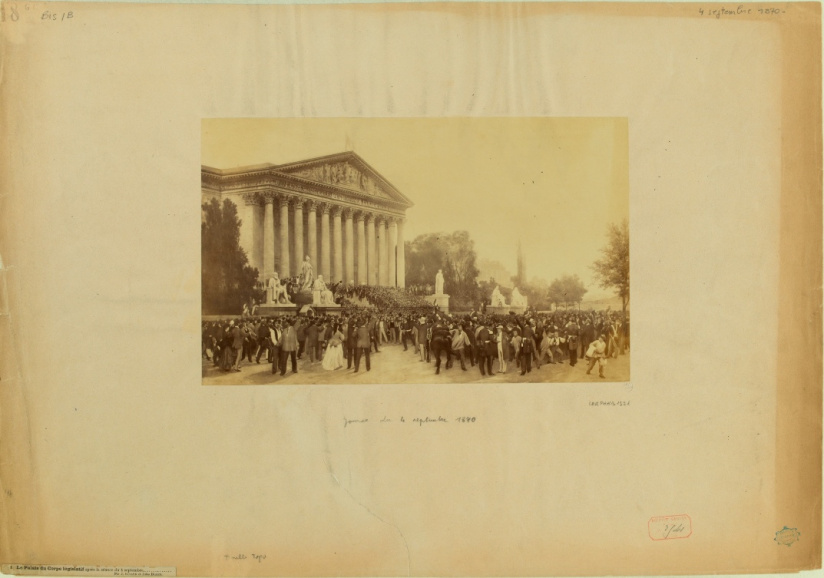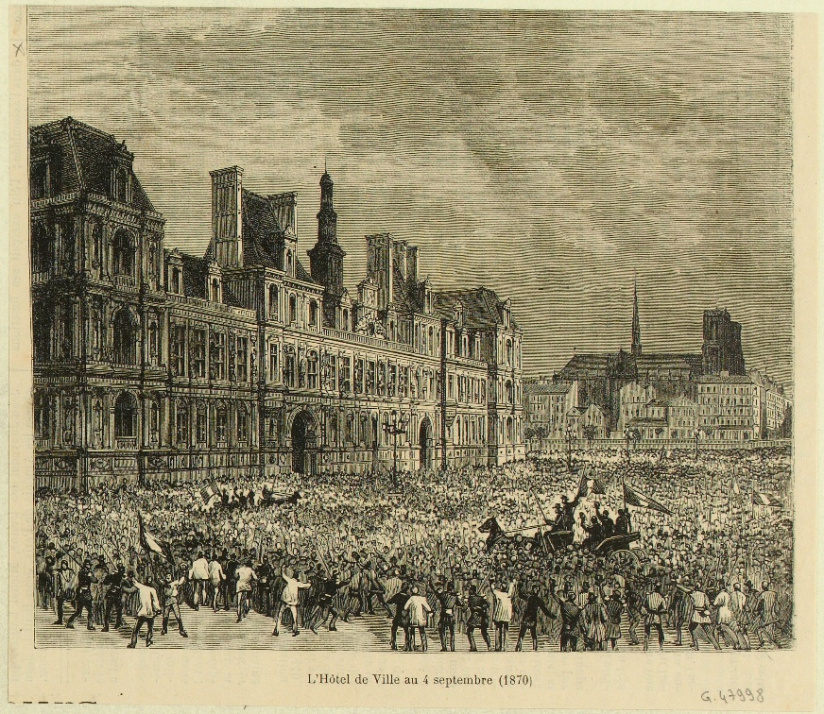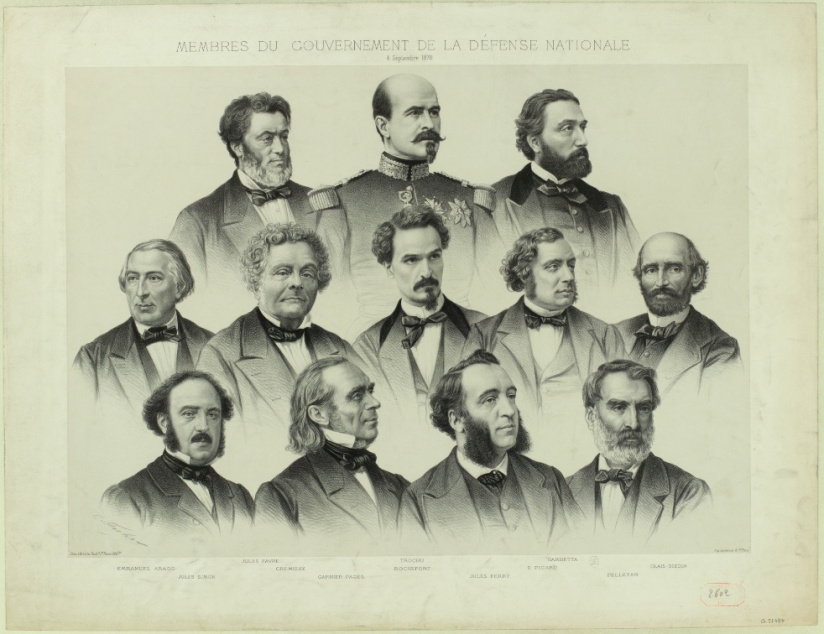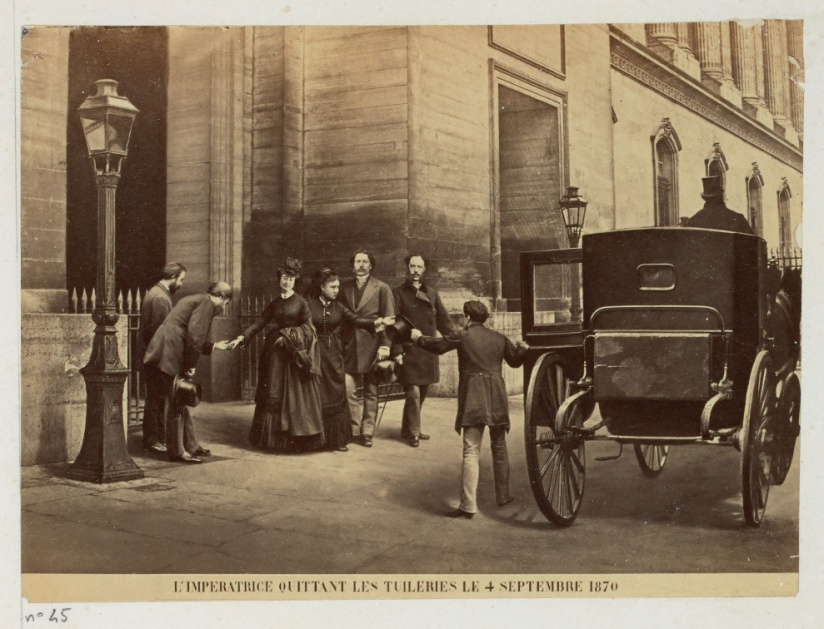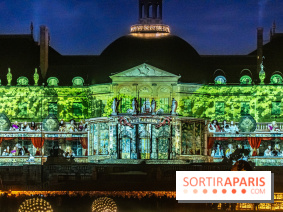On Sunday September 4, 1870, Léon Gambetta, then a member of the National Defense government, proclaimed the Third Republic in the Place de l'Hôtel de Ville, in response to the fall of the Second Empire following the defeat at Sedan and the capture of Napoleon III, and to the growing insistence of the Parisian people and the Republicans.
Two days earlier, on September 2, 1870, the battle of Sedan had turned into a disaster for the French armies, commanded by Marshal de Mac Mahon, who capitulated to the Prussian armies. From Sedan, Napoleon III sent a telegram from the Tuileries Palace to his wife, Empress Eugénie, in which he announced: "The army is defeated and captive, and I myself am a prisoner.
On hearing the news, General Cousin de Montauban, head of the Ministry of War, convened a meeting of the deputies of the Corps législatif on the night of September 3 to 4, 1870, to decide what course of action to take; the deputies did not wish to entrust the regency of the Empire to the Empress. However, groups of workers, having learned of the meeting underway at the summit, forced their way into the Palais Bourbon, seat of theNational Assembly, and invited themselves into the debate, while the crowd outside swelled.
While a plebiscite a few months earlier had confirmed the liberal orientation of the empire and the role of Napoleon III by 7,336,000 yes votes to 1,560,000 no votes, Paris was distinguished from the provinces by a republican majority in favor of a regime change.
The Parisians forced their way back into the Palace and demanded that the deputiesestablish the Republic. Faced with thepopular insurrection, a group of Republican deputies, including the 4 Jules of the future "Republic of the Jules", Jules Favre, Jules Grévy, Jules Simon, Jules Ferry, but also Adolphe Crémieux and above all Léon Gambetta, suggested proclaiming it at the Hôtel de Ville, as at the time of the Revolutions of 1789 and 1848.
On September 4, 1870, the Third Republic was proclaimed on the Place de l'Hôtel de Ville by Léon Gambetta, in the name of the people: "The people have anticipated the hesitant Chamber. To save the Fatherland in danger, they have asked for the Republic: it has been proclaimed, and this revolution is made in the name of law and public salvation. Citizens, watch over the city entrusted to you; tomorrow, you will be with the army of the Patrie's avengers."
The jubilant crowd witnessed the event, reminiscent of Lamartine's proclamation of the Second Republic on February 24, 1848. A somewhat surreal situation, at odds with the country's military situation, the political stakes and theadvance of Prussian troops across the country.
So, to reassure the people in the face of thePrussian invasion, Jules Ferry had the idea of forming a provisional government, constituted de facto and not de jure, and made up of republican deputies from Paris, while the Empress packed up for England.
Under the presidency of the conservative general and military governor of the capital, Louis Trochu, this government of National Defense, acclaimed by Parisians, was made up of Jules Favre, Léon Gambetta, Emmanuel Arago, Adolphe Crémieux, Henri Rochefort, Ernest Picard, Alexandre Glais-Bizoin, Jules Simon, Louis-Antoine Garnier-Pagès, Jules Ferry and Eugène Pelletan.
The will of the National Defense government is clear: the war must go on. But the situation rapidly deteriorated. On September 19, 1870, the capital was surrounded by enemy troops, and the siege of Paris had only just begun.
However, despite the election on February 8, 1871 of a National Assembly dominated by conservatives, monarchists and Bonapartists, which slowed the establishment of a republican regime, and notwithstanding the bloody repression in May 1871 of the Paris Commune, initiated in response to the signing of an armistice with Bismarck, by executive leader Adolphe Thiers and the Versailles army, attempts to restore the monarchy failed, and the Third Republic took root until July 10, 1940, making it the longest-lasting republican regime in French history.
TheNational Assembly rarely opens its doors to the general public, with the exception of the Heritage Days. This year, it's back again, with an exceptional opening on September 18 and 19. Take a behind-the-scenes look at power and the national heritage preserved in this mecca of French politics.
Location
Place de l'Hôtel de Ville
Place de l'Hôtel de Ville
75004 Paris 4
More information
Iconography: Header: Députés de la Seine. Members of the National Defense, September 4, 1870, Musée Carnavalet Le Palais du Corps législatif après la séance du 4 septembre, Guiaud & Didier, Musée Carnavalet L'Hôtel de Ville au 4 septembre, anonyme, Musée Carnavalet Membres du Gouvernement de la Défense Nationale, anonyme, Musée Carnavalet Les adieux de l'Impératrice Eugénie, lors de son départ des Tuileries, anonyme, Musée Carnavalet
